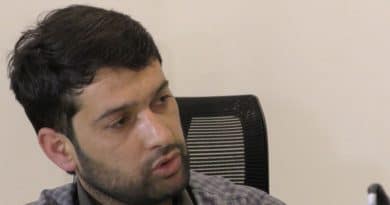In Uzbekistan, journalists and bloggers received terms
Opposition journalist Mahmud Radjabov sentenced to 5.5 years in prison on probation, blogger Rustambek Karimov – to 3 years in prison, his colleague Tulkun Atanov – to 5 years on probation with a probationary period.
The Uzbek media spread a report of the Supreme Court on sentences to three media activists, in particular under paragraphs of article 244 of the Criminal Code. This article prescribes punishment for the manufacture, storage, distribution or demonstration of materials containing a threat to public safety and public order.
Recall that in September of this year, in order to prove his innocence, the journalist Mahmud Radjabov decided to walk from Khorezm to Tashkent. “We are tired of pressure from the police department of Khorezm region. We decided to walk to the capital, as we did not receive a single response to our appeals to higher authorities in Tashkent,” the journalist said then. “Our goal is to reach the capital and personally meet with the Minister of the Internal Affairs Pulat Babadzhanov. They slandered me without reason. I could not prove my innocence in Khorezm, so we decided to go to Tashkent.”
According to the investigation, which lasts six months, Mahmud Radjabov was accused of smuggling the books of a famous figure of the Uzbek opposition, Muhammad Salih. Khorezm blogger Nafosat Ollashukurova broadcast the walk on the Internet, for which she was later sentenced to administrative arrest and is currently undergoing compulsory treatment in a neuropsychiatric dispensary.
The criminal case against Karimov and Astanov was initiated at the initiative of the investigative department of the State Security Service. In early April, bloggers were detained after demanding a meeting with the chairman of the Muslim Board of Uzbekistan, Mufti Usmonkhon Alimov. During the action, they also broadcast what was happening on the social network.
The administrative court of Almazor district of Tashkent then found them guilty of hooliganism and opposition to the requirements of law enforcement officials. Later, Uzbek security officers discovered in the smartphones of bloggers “materials of extremist organizations banned in the country and propagating the ideas of dogmatism”. The Central Internal Affairs Directorate of Tashkent in late April provided incriminating materials to the State Security Service.
The repressive reaction of the authorities to peaceful protests is explained by representatives of the civil society of Uzbekistan fear of possible popular unrest, for which there are reasons in the country. This is also a desire to reduce the importance of the religious factor in society and socio-economic problems.




